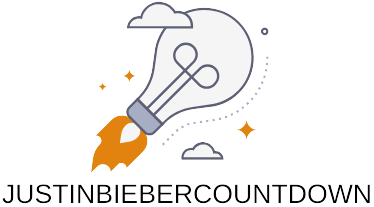Table of Contents
ToggleMotivation is like the coffee of life—without it, everything feels a bit bland. It fuels ambition, sparks creativity, and pushes people to chase their dreams. Imagine trying to run a marathon without the drive to cross that finish line. Spoiler alert: it won’t go well.
In a world that often feels like a never-ending to-do list, understanding the importance of motivation can be a game changer. It’s the secret sauce that transforms goals from mere wishes into reality. Whether it’s in the workplace or personal life, a little motivation can turn mundane tasks into exciting challenges. So, let’s dive into why motivation isn’t just a nice-to-have; it’s essential for thriving in today’s fast-paced world.
The Importance Of Motivation
Motivation serves as the driving force behind goal achievement. It fuels ambition and determination, enabling individuals to pursue their aspirations. Achieving personal and professional objectives requires a continuous source of motivation.
Creativity often flourishes under the influence of motivation. Driven individuals generate innovative ideas and solutions, contributing positively to their environments. Engaging in tasks feels more rewarding when motivation levels are high.
In the workplace, motivated employees display higher productivity and better teamwork. They tackle challenges with enthusiasm and a positive attitude. Organizations benefit significantly when their teams remain motivated, leading to increased overall performance.
Daily tasks become more manageable with the right motivational mindset. Individuals find fulfillment in completing even the most mundane chores when driven by personal goals. Consistent motivation transforms obligations into opportunities for growth and achievement.
Motivation also plays a crucial role in enhancing one’s resilience. Overcoming obstacles becomes easier when individuals remain focused on their goals. They display persistence and adaptability in the face of setbacks, allowing them to move forward effectively.
Understanding the importance of motivation reinforces its value in daily life. Individuals recognize that maintaining motivation leads not only to personal satisfaction but also to professional success. Nurturing motivation can create a sustainable pathway for growth and achievement in a fast-paced world.
Types Of Motivation


Understanding the types of motivation can illuminate its impact on behavior and performance. Two primary forms exist: intrinsic and extrinsic motivation.
Intrinsic Motivation
Intrinsic motivation stems from internal desires and personal satisfaction. Engaging in activities because they provide pleasure or fulfillment drives this type of motivation. For example, learning a new language might excite someone due to a passion for culture. Challenges that come from personal interests encourage exploration and growth. Learning for knowledge’s sake enhances creativity and critical thinking skills. Individuals exhibiting intrinsic motivation often demonstrate higher levels of commitment and resilience.
Extrinsic Motivation
Extrinsic motivation relies on external rewards or consequences to drive behavior. This includes recognition, financial incentives, and grades. For instance, a worker might strive for a bonus to boost performance. Social approval and competition can also serve as powerful motivators. Influential factors like deadlines and peer pressure shape decisions and actions. Often, extrinsic motivation effectively enhances productivity, especially in structured environments. However, relying solely on external factors may diminish intrinsic interest over time.
Factors Influencing Motivation
Motivation is shaped by several key factors. Understanding these influences can enhance personal and professional effectiveness.
Personal Goals
Setting personal goals provides a clear direction for individuals. Goals act as benchmarks for measuring progress and achievement. When people articulate specific, attainable objectives, they increase motivation significantly. Pursuing goals that align with personal values fosters a deeper commitment. For example, an individual passionate about fitness may find motivation in setting a target to run a marathon. Achieving milestones along the way boosts morale, reinforcing the desire to continue progressing. Personal goals, when set thoughtfully, serve as powerful motivators, inspiring action and sustained effort toward fulfillment.
Environment
The surrounding environment plays a crucial role in shaping motivation. Supportive environments, whether physical or social, encourage motivation to thrive. Positive relationships with peers, mentors, and colleagues foster collaboration and inspiration. Access to resources and tools also enhances a person’s ability to stay motivated. For instance, a bright, organized workspace can increase focus and productivity. Conversely, negative surroundings can hinder motivation, creating barriers to success. Cultivating an environment that encourages growth, creativity, and positivity leads to higher motivation levels. Recognizing these environmental factors helps individuals create spaces that promote motivation effectively.
Benefits Of Motivation
Motivation offers significant advantages that transform personal and professional lives. It serves as a catalyst for numerous positive outcomes.
Enhanced Performance
Enhanced performance results directly from increased motivation. Individuals often display greater focus and efficiency when motivated. Tasks become easier to tackle, and goals appear more achievable. In workplaces, motivated teams show improved collaboration and creativity, driving higher output. Employees frequently meet deadlines and exceed expectations when they feel energized. Companies benefit from this boost in morale and productivity, leading to overall growth and success.
Improved Well-Being
Improved well-being stems from a strong sense of motivation. Those with clear personal goals often experience heightened satisfaction in everyday life. Engaging in activities driven by intrinsic motivation enhances self-esteem and happiness. When people pursue their passions and ambitions, stress levels can decrease significantly. A motivated mindset also fosters resilience against setbacks, supporting mental health. Individuals frequently find themselves more fulfilled when motivation fuels daily actions, creating a sense of purpose.
Motivation is more than just a fleeting feeling; it’s the backbone of personal and professional success. By understanding its various forms and influences, individuals can harness motivation to propel themselves toward their goals. A motivated mindset transforms challenges into opportunities and fosters resilience in the face of adversity.
Creating supportive environments and setting clear goals can significantly enhance motivation levels. As individuals nurture their intrinsic and extrinsic motivators, they pave the way for greater fulfillment and achievement. Embracing motivation as a driving force ensures a richer and more rewarding life experience.






